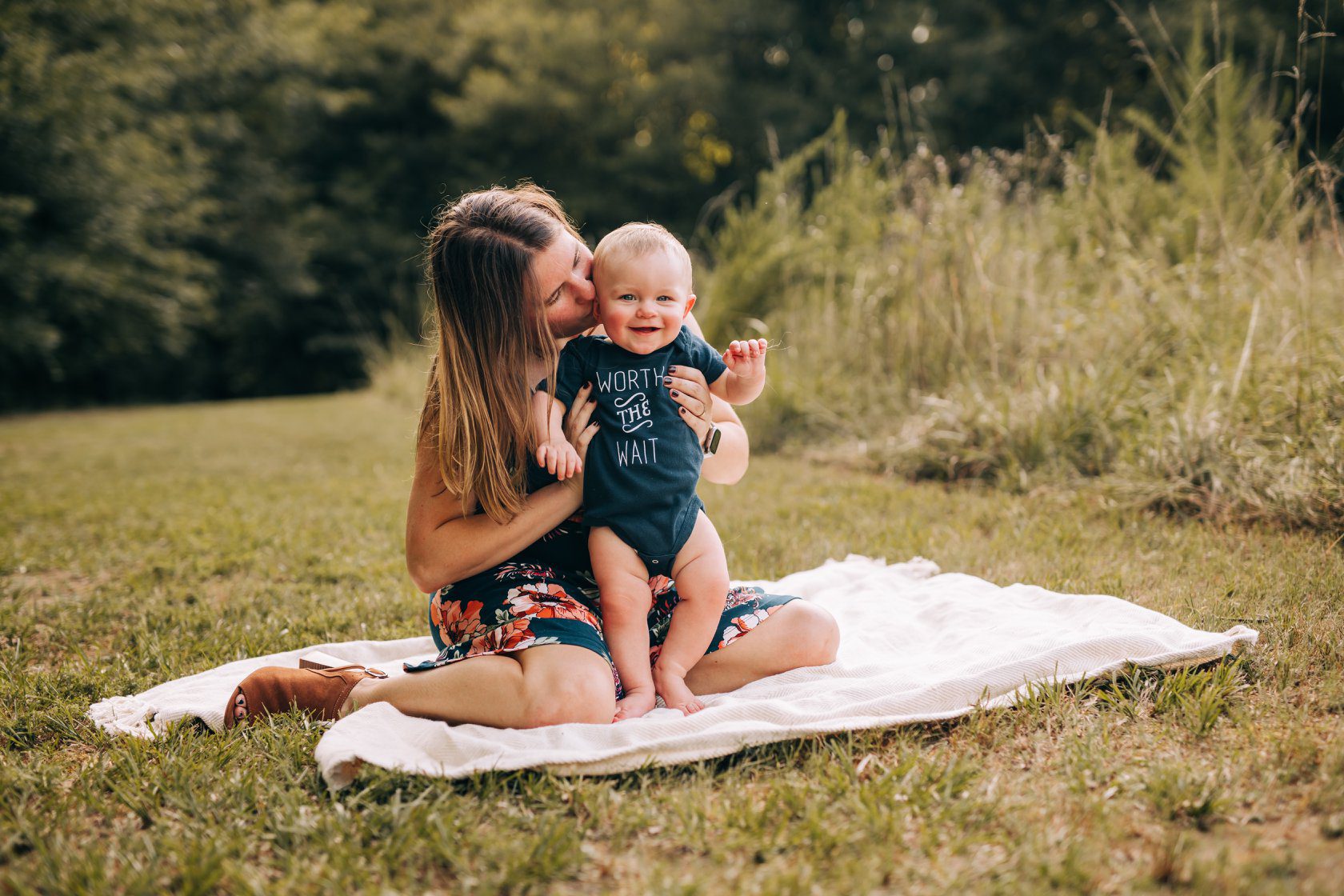Interview: Sarah Ekis

Sarah Ekis, human resources manager for EHRA NF administration and staff performance management, put her greatest focus is on the community of women she supports during this pandemic. Find out more about Ekis’ personal journey and how she helps women in the Q&A below.
What have you been doing during this at-home time to improve your health, whether physically, spiritually or mentally? Why did you decide to do it?
My situation is a little different, in that my story involves helping others with their mental health. I run a support group for women going through infertility. The group is run through RESOLVE, the National Infertility Association, which I currently volunteer for. I struggled with infertility for seven years before I got pregnant and had my son (who was born 1/1/20). I have always been incredibly open about my infertility journey and many folks on campus are aware that my baby is a donor embryo baby. Since the pandemic started things in the infertility world have been hard. Back in March when everything shut down, almost everyone’s infertility treatments were canceled and postponed. When you are going through infertility, one month can feel like a year, and it takes a toll on your physical and mental health. In addition to the regular group, I also facilitate a group for our “graduates” (which includes pregnant women and women who have successfully grown their family after infertility). Before the pandemic, my regular group met once a month in person. My graduates never met in person; we just had a Facebook group where we connected. When the pandemic hit, we had to adapt quickly because the group needed more support. I changed our meetings to virtual meetings, and we started meeting twice a month with the regular group. My graduates turned out also needed more support, especially those that were pregnant, so we started meeting weekly with them (also virtually). With so much uncertainty about COVID-19 and giving birth, it was a stressful time for a lot of women. I also decided we needed to investigate other ways to connect and support each other. We started doing guest speakers and virtual social events as well. Our speaker in October was a therapist who spoke to us about managing grief associated with infertility.
What is/was the most challenging part of it? Most rewarding?
The women in my group are faced with a lot of challenges. Infertility is a very isolating disease. COVID-19 made it even more isolating. The treatments that these women need to get pregnant and grow their family are being canceled or postponed. As we start to open back up again and they can move forward with treatment, their spouses cannot attend appointments with them. What has been rewarding is watching these women support one another. In the past few months, our group has experienced miscarriages, failed treatments and some success. I have watched this group grieve the losses and celebrate the successes like they were their own.
What would you say to encourage your colleagues during this time?
I would encourage people to be kind, patient and compassionate with everyone. One in eight women struggle with infertility. Unfortunately, there is a lot of shame that comes with infertility, so it ends up being a private disease. For anyone battling this, I would want to tell them that they are not alone and to allow themself some grace. It is a hard disease and there are people who can support you.
Is there anything else you’d like to mention?
If you do know that someone is struggling with infertility and needs support, please have them reach out to me or check the RESOLVE website for more information.
Interview: Jordan Estabrook